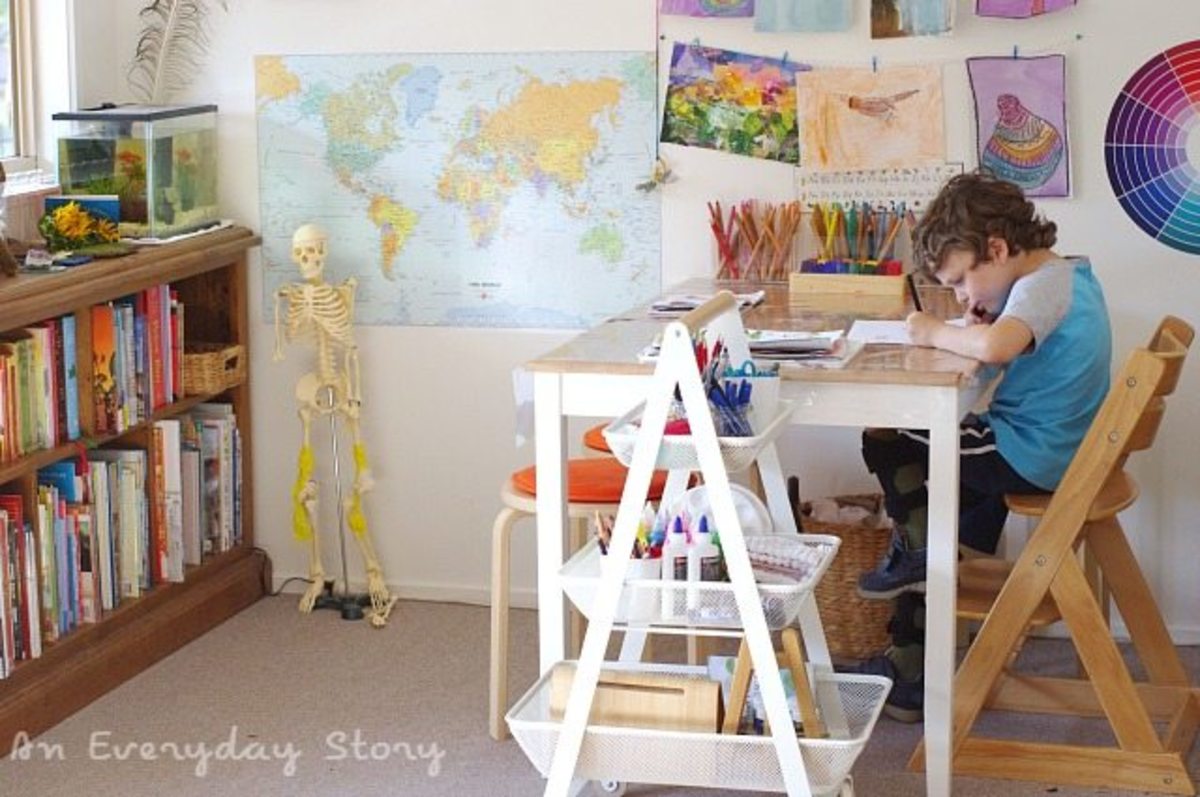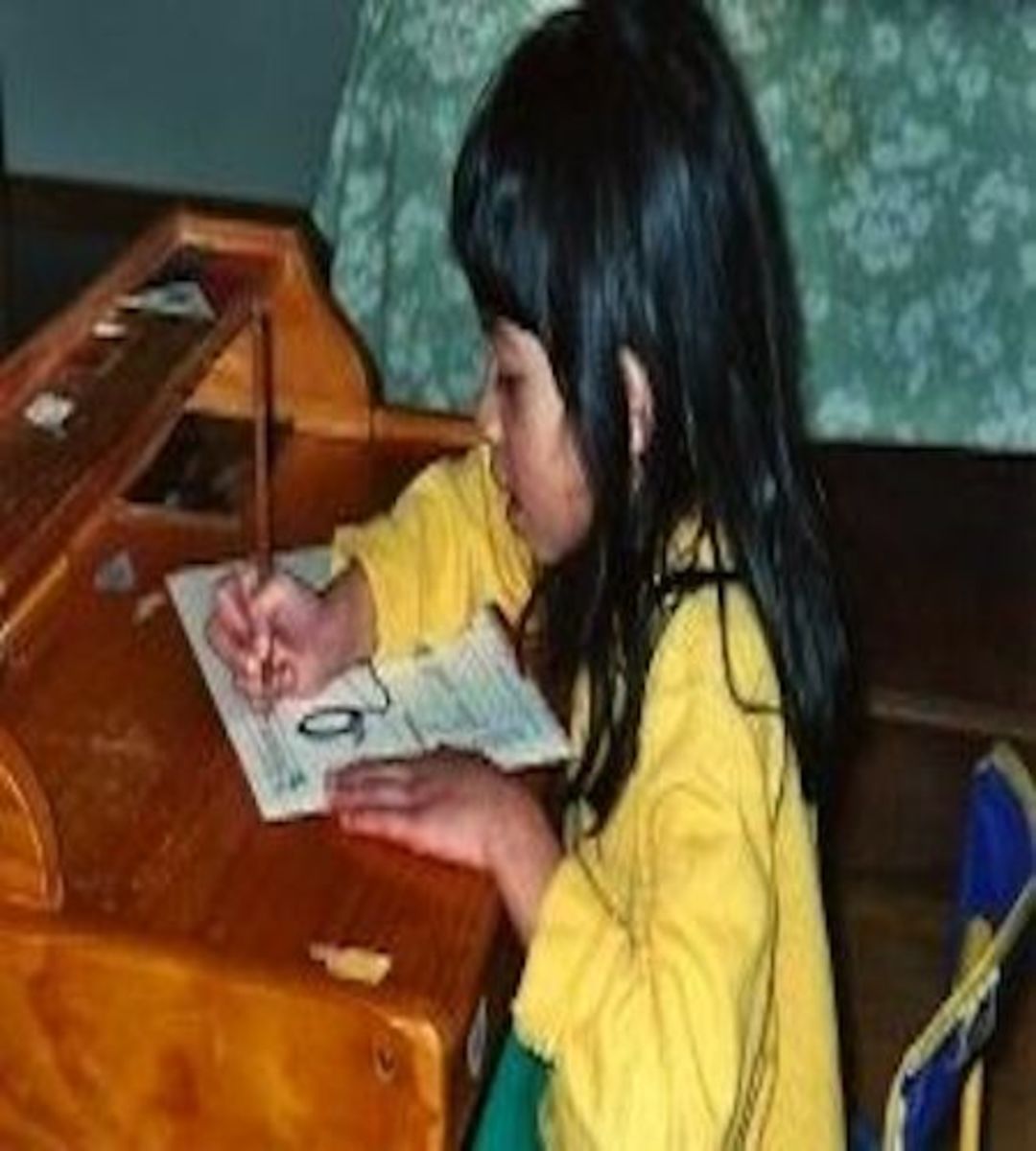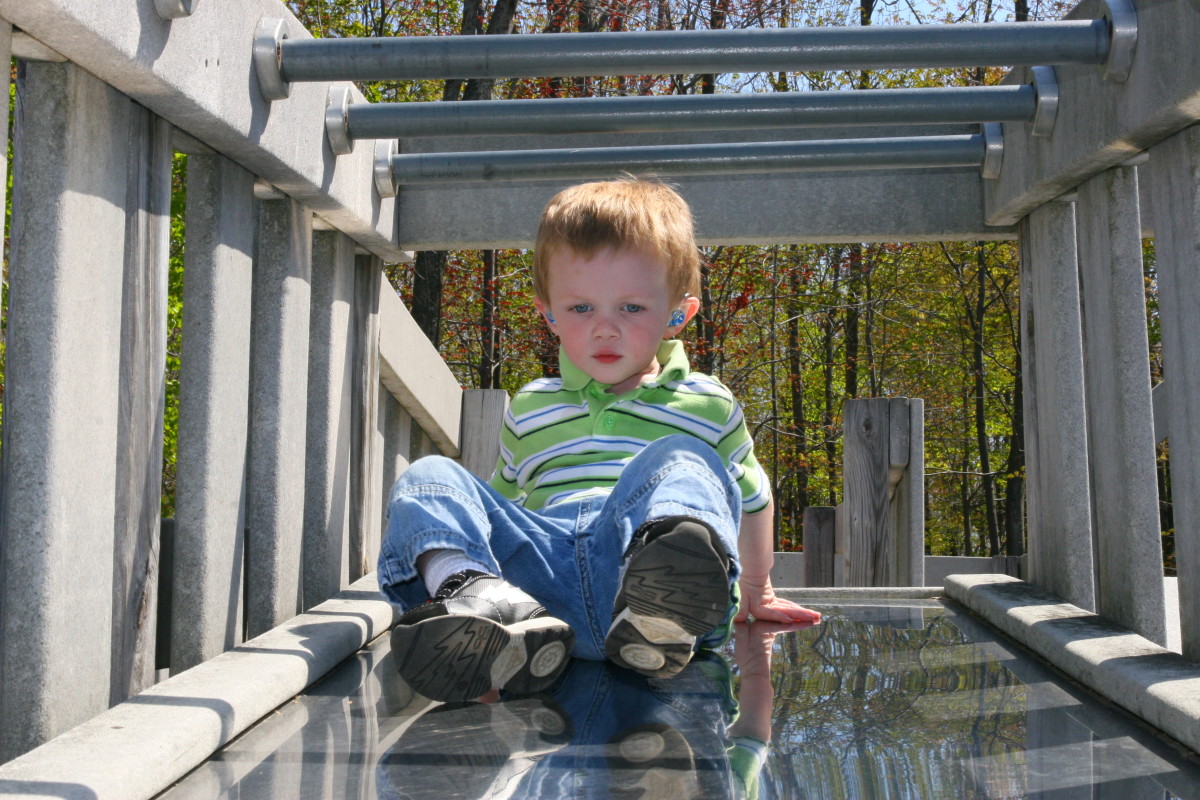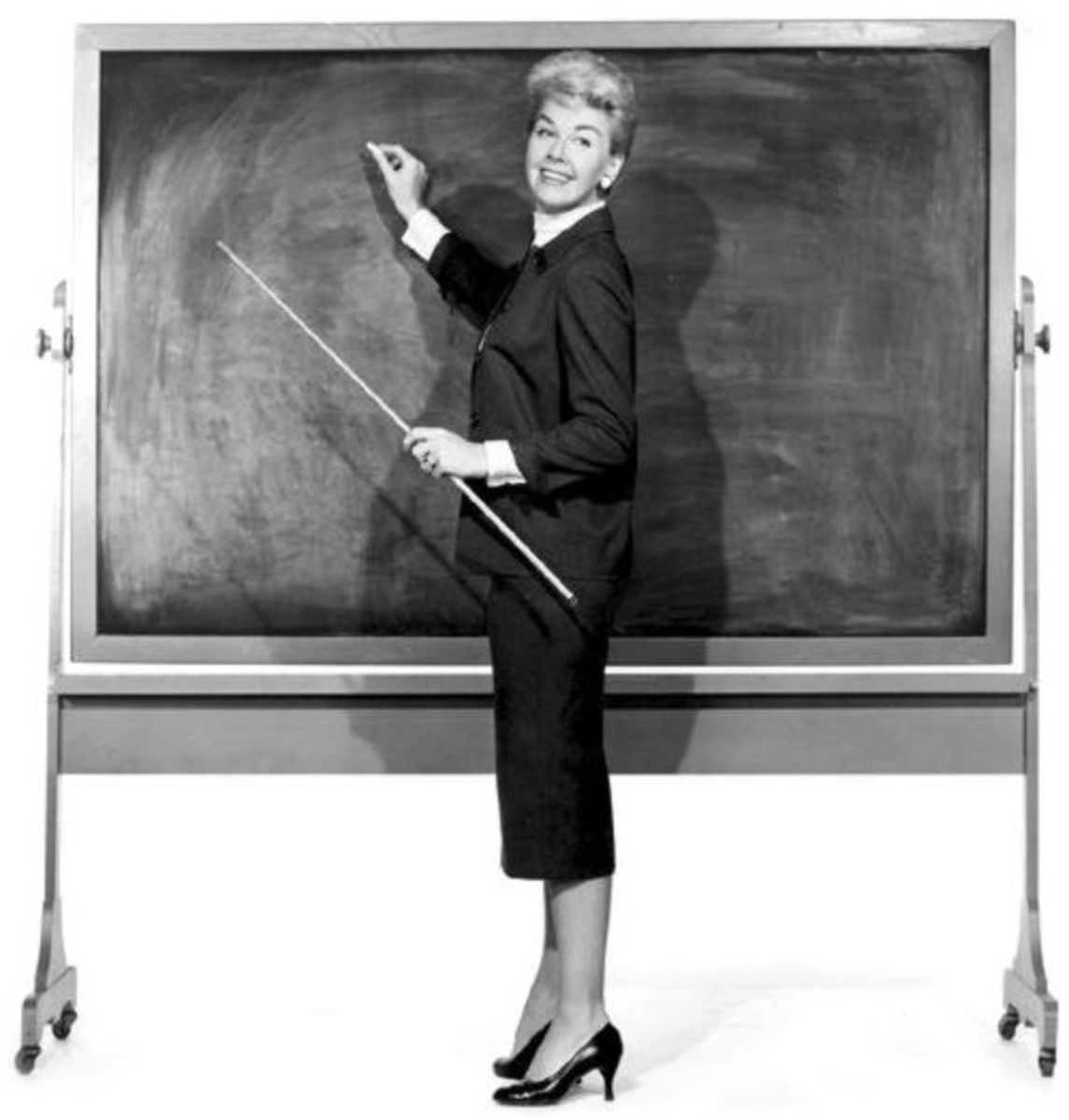Inspired Homeschool
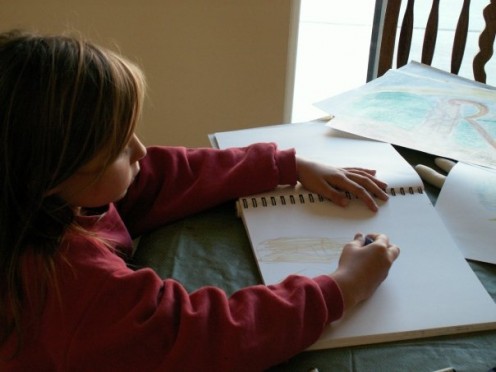
An Introduction to Waldorf Homeschooling
Humorous Clip on Homeschool Stereotypes
How to Inspire Your Children and Yourself by Creating an Encouraging Homeschool Environment
William Butler Yeats (Poet, 1865-1939) once wrote that "Education is not the filling of the pail, but the lighting of a fire." Like Yeats Plutarch (45-15 A.D.) expressed similar sentiments centuries before when he said, "The mind is not a vessel to be filled but a fire to be kindled."
Both Plutarch and Yeats (whose own thoughts on education were most likely linked to the ancient Greek historian's) realized true education has its basis in wonder, curiosity and excitement. In our society we have the erroneous belief that learning can be imposed on a person but, as philosophers and scientists like Galileo point out, just the opposite is true: an educator should serve as a guide, facilitator and mentor so the pupil finds the answers within him/herself. Children are naturally thirsty for knowledge. Unless improper education has dampened his/her fire, it is the rare child who does not find joy in learning.
A question many people pose when deciding whether or not to home school is, "how do you get your kids excited about homeschooling?" I had the same question before we started our homeschool journey. Before I tasted the freedom and delight of home education, homeschooling evoked images of a tiresome, frazzled, mother drilling her tired, grumpy kids. Why would anyone go through such torture? How could I possibly have all the knowledge necessary to teach my children? Would they listen to me? How could I make them do their work? What if they defied me or were bored? I certainly couldn't send them to the principal's office!
I was quite unsure of myself, yet the idea of learning at home inspired me so much that I continued my quest for understanding and knowledge. After five years researching the home school movement we took the leap into this lifestyle and have not looked back. And, yes, it is indeed a lifestyle choice. Homeschooling is not just something that one does but a way one lives.
Whether or not you are considering homeschooling your child from Kindergarten on, or are thinking about removing them from public school, concern about how to inspire your child is valid and real. So how does one go about lighting the fire Yeats wrote about?
Home is Not School
First, understand that home is not school. Repeat it with me one more time now: Home is Not School! Ask many teachers in public schools what type of classes they took in college to obtain their teaching credential and you will find that many of their classes centered on classroom management and how to present lessons to a large group of kids. These techniques are useful in a classroom environment but not necessary when one wants to tutor two or three children.
Embedded in our modern culture is the idea that children need to go to an institution to fill their pail. But learning isn't something you can quantify with an ACT exam or keep safe in a bell jar. Learning is a process that begins when we are born and continues until we die. A tremendous amount of learning has been done before a child ever sets foot through the door of a school. The National Academy of Sciences supports this view in their commissioned report,How People Learn: Brain, Mind, Experience and School (1999):
"Even young infants are active learners who bring a point of view to the learning setting. The world they enter is not a "booming, buzzing confusion" (James, 1890), where every stimulus is equally salient. Instead, an infant's brain gives precedence to certain kinds of information: language, basic concepts of number, physical properties, and the movement of animate and inanimate objects. In the most general sense, the contemporary view of learning is that people construct new knowledge and understandings based on what they already know and believe (e.g., Cobb, 1994; Piaget, 1952, 1973a,b, 1977, 1978; Vygotsky, 1962, 1978)."
Whether or not you realize it, as your child's parent you have been 'teaching' them since birth. A classroom environment is not necessary for a child to learn. In fact, some of the best learning that is retained and used is done in a relaxed atmosphere. A science lesson on fungi took place in our backyard by dissecting mushrooms on our lawn. My kids have engaged in Drama and P.E. when reciting Christina Rossetti’s poem, Precious Stones, from the top branches of our willow tree. A field trip to the store was a lesson on money and decimals. Because home is not school, a world of educational opportunities await from morning until night. As the Confucian saying goes: What I hear I forget, What I see I remember, What I do I understand.
The realization that one does not need to recreate school at home frees both the parent and child and opens the gateway to academic exhilaration and curiosity. This is why, when removing a child from public school, it is often recommended to let the child adjust to being at home for a couple of months by not doing schoolwork and focusing on family rhythms. The child must also realize that home is not school and allow their inherent love for learning to resurface.
Excitement for learning naturally springs from within children--you cannot create it for them. You cannot make them enjoy school, home or otherwise. What you can do is encourage them by providing a rich environment full of educational opportunities. Your home is such a place.
How to Give Your Child the Wish to Learn
The important thing is not so much that every child should be taught, as
that every child should be given the wish to learn.
-- John Lubbock
Okay, you get it. Home is not school and you cannot force a child to learn. How, then, do you help foster the wish to learn? Are there specific things as a parent that you can do? `
No matter what curriculum you choose or how you decide to break up your school year-the most important decision you make regarding your home school is how you plan to further your own intellectual, physical and spiritual development. As Robert Fulghum so wisely observes: "Don't worry that children never listen to you. Worry that they are always watching you."
What am I talking about when I say it is important to further your development?
Be Imaginative
Albert Einstein has a few famous quotations about imagination being more important than knowledge. It is. Even if you doubt your ability as a teacher realize that an imaginative mind, the internet, and a solid core curriculum can get you through the rough patches. More important than stuffing your kids’ heads full algorithms or Greek letters is the ability to inspire and ignite their learning fire through imaginative stories, games and play. With their learning light aflame they will later seek out and learn the things you cannot teach them on their own or through the help of other adult mentors or teachers.
Be a Role Model, not a Critic
A lot of time we criticize our children because we don't want them to make mistakes. But the best way to teach our kids is by trusting in them and modeling good behavior. Criticism, by its very nature, demeans and shames; yet excessive praise can be just as damning. The best approach is to keep a solid center and show them how to learn, how to take care of their bodies, and how to be a decent and respectful person by doing those things yourself.
Be Prepared
Maybe it is the Boy Scout motto, but there is something to be said for being prepared. Being prepared might mean different things to different homeschoolers. For me, being prepared is being mentally, spiritually and physically ready to teach. Mentally I prepare by getting my lesson materials together, planning crafts and field trip activities. Physically I prepare by getting enough sleep and taking care of my body with exercise and a good diet. Spiritually I prepare through prayer, meditation, contemplation, reading scriptures and other thoughtful material. Some home school moms don't need as much preparation as I do-but I do know that if I am not prepared I have a hard time being enthusiastic; if I am not enthusiastic my children are not as excited about homeschooling
Be With Your Children
What do I mean? Sometimes it is hard to let go of the daily stress and actually be with our children. Kids know it too. They can tell when our mind is somewhere else or when we are not interested in the story we are perfunctorily reading. The best kind of learning is done when both parties are invested in the experience. If you begin to feel like the stereotypical frazzled home school mom stop, drop and be with your child.
If it seems like I am saying that the parents have a huge responsibility when they home school-I am. As a parent you are the one who ultimately decides the tenor of your home school days and whether your children see them as days filled with drudgery, or days filled with excitement.
Difference between Teaching and Educating
- I Quit, I Think
- Homeschool Tips for Beginners
I suppose that the last thing educators want parents to say is that homeschooling is easy. That would mean that teachers may be heading the way of the dinosaur. However, teachers can relax. Most people,... - http://www.nap.edu/catalog.php?record_id=6160
- Why do teachers choose to homeschool? English 315 Feature Article Assignment #2


